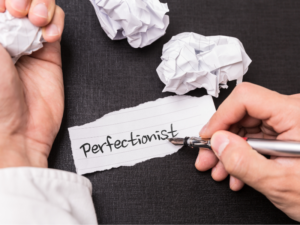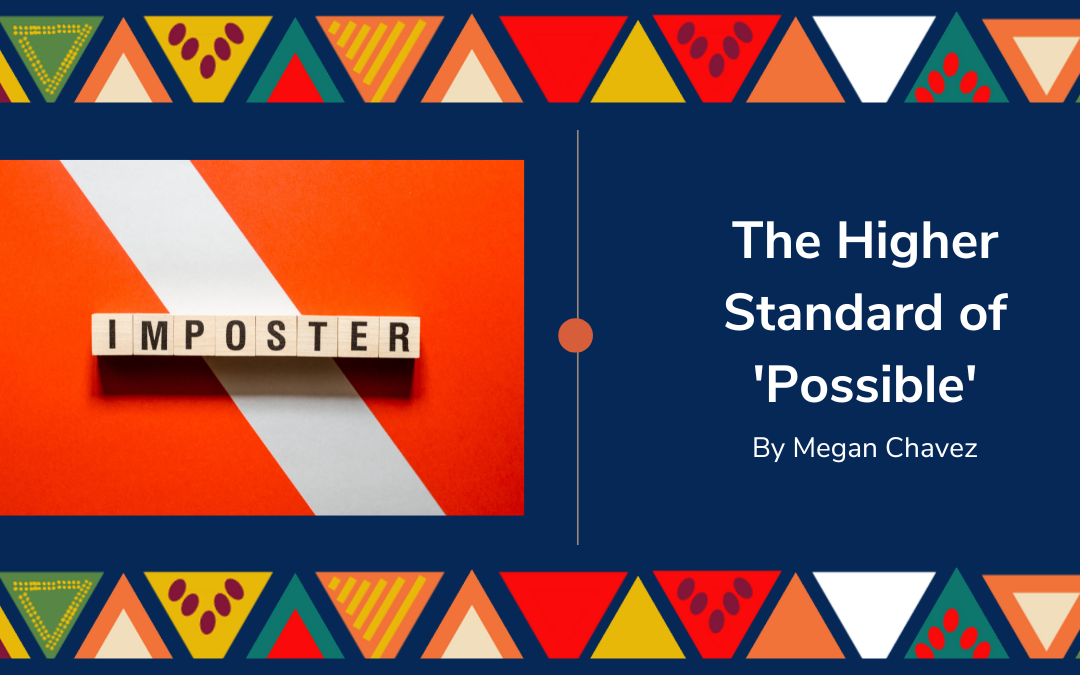I was raised to be a high achiever. As the eldest daughter in my family, the pressure to succeed and contribute has always been there. Since I was a kid, I’ve always had a drive in me to eat, sleep, and breathe success. Nonetheless, becoming the physical embodiment of skill and achievement leaves little room for the acceptance of anything less than perfection. These values were instilled in me from a young age. If anything, they have both encouraged my impostor syndrome and helped me realize my potential beyond the absence of perfectionism.

Before I entered the world of talent consulting, I was a theatre kid. I studied performing and technical aspects of the art form in high school and entered college with the intention of obtaining my BFA in Acting. Until everything started to crumble.
Although a willingness to learn seems like a positive thing, I was far too committed to my job. I constantly prioritized it over everything else to prove myself to my peers. I constantly felt out of place, like one day, everyone would put on their glasses and realize I was not good enough for the likes of them. I wasn’t talented enough, committed enough, or real enough. My life and all I worked for could fall apart at the seams.
As a Latina woman, one would expect that “imposter syndrome” is a common phrase.
Admittedly, I had not heard of it. I lived with a nagging feeling of doubt. This persistent state of being seemed to be coming from out of nowhere. I loved theatre, I still do. No matter how much effort I put into my craft, why did I still feel so inadequate compared to my peers? This constant inkling of if I showed an ounce of imperfection, I would be discovered. My inexperience would give me away to be the fraud I was. That’s imposter syndrome. I just never knew the word for it until now.

In the end, I chose to leave theatre. As much as I loved doing it, I enabled the toxic perfectionist in me. I was so focused on being the best and holding myself to high standards of perfection. The line between the job I loved and maintaining the cookie-cutter image of THE theatre kid was blurred. I let my life outside of theatre disintegrate, including my relationships with friends and family.
In retrospect, I know at some point I have to be okay with not knowing everything. I couldn’t find that point in theatre. With my graduation slowly approaching and my degree brushing the tips of my fingers, I have to find a balance. I have to learn to be okay with learning.
I would love to say that this feeling goes away.
Living with the newfound explanation of my strife, living with impostor syndrome, makes it easier. In truth, it’s overwhelming, and I carry intense respect for those who have been living with this knowledge longer than I have.
Although I still love theatre, leaving was the hardest yet best thing I could have done for myself. I left the job behind, but the doubt still persists after closing. Even now, I find it hard to not cave into the effects of impostor syndrome. To not compare myself to others. To not feel like a fraud among my peers or coworkers. Honestly, I still do it. My goal, now, is to find a way to combat the need to be anything other than flawless.
In the spirit of finding methods to cope with my feelings of inadequacy, I offer you some advice. From me to those who still struggle with the adverse effects of impostor syndrome, let this post serve as a reminder to
- Celebrate the little things in life.
- Recognize the things you’ve accomplished to be where you are now.
You wouldn’t be where you are today without being good enough.
Lastly, perfection doesn’t exist.
If I continue to hold myself to as high a standard as perfection, that will never be. After writing this piece, I have learned to hold myself to the higher standard of ‘possible’.
I will carry the expectation that I will do as I am capable. The learning never ends. I can only hold myself accountable for all that is possible. I am able. I am competent. I am good enough to be where I am today. It will be a long road before I can say I have overcome impostor syndrome; however, I hope that the practice I preach to you today will form habits to help us reach the standard of ‘possible’.
Want more CG content like this?
Check out this blog by Wendy Fong, “There Is No Way to Have It All.”
Read through the Forbes | Coaches Council Expert Panel on “15 Ways to Overcome Impostor Syndrome”


Trackbacks/Pingbacks